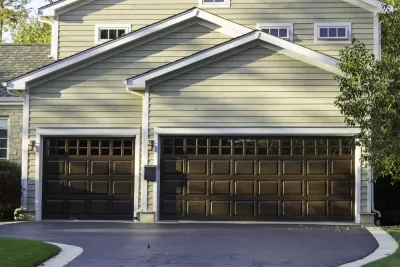Cities that are serious about transportation goals need to think seriously about supporting families who choose to live low car lifestyles.

Cities and counties across North America have adopted transportation goals to increase the number of people walking, biking and riding transit. Ultimately, these goals help improve public health, reduce air pollution from vehicle emissions and make streets safer for everybody. Places that support and encourage one car families will achieve long term success toward these metrics.
By definition, a one car family makes some of its trips on foot, bike or bus, thus helping achieve your transportation goals. One car families don’t magically appear; they require supportive physical environment and public policy.
For cities to thrive in the coming decades, they will need to accommodate families with young and adolescent children who take fewer trips in cars. Often, families fall into the two-car trap: the jobs, schools and services they depend on require two cars. In many places, it’s currently impractical for individuals to live a satisfying life completely car-free. For places with serious goals relating to walking and biking, a focus on supporting one car families will lead to long term progress.
Read the full article on American City & County.
FULL STORY: One car family: the next frontier in transportation

Planetizen Federal Action Tracker
A weekly monitor of how Trump’s orders and actions are impacting planners and planning in America.

Map: Where Senate Republicans Want to Sell Your Public Lands
For public land advocates, the Senate Republicans’ proposal to sell millions of acres of public land in the West is “the biggest fight of their careers.”

Restaurant Patios Were a Pandemic Win — Why Were They so Hard to Keep?
Social distancing requirements and changes in travel patterns prompted cities to pilot new uses for street and sidewalk space. Then it got complicated.

California Homeless Arrests, Citations Spike After Ruling
An investigation reveals that anti-homeless actions increased up to 500% after Grants Pass v. Johnson — even in cities claiming no policy change.

Albuquerque Route 66 Motels Become Affordable Housing
A $4 million city fund is incentivizing developers to breathe new life into derelict midcentury motels.

DC Area County Eliminates Bus Fares
Montgomery County joins a growing trend of making transit free.
Urban Design for Planners 1: Software Tools
This six-course series explores essential urban design concepts using open source software and equips planners with the tools they need to participate fully in the urban design process.
Planning for Universal Design
Learn the tools for implementing Universal Design in planning regulations.
Heyer Gruel & Associates PA
JM Goldson LLC
Custer County Colorado
City of Camden Redevelopment Agency
City of Astoria
Transportation Research & Education Center (TREC) at Portland State University
Camden Redevelopment Agency
City of Claremont
Municipality of Princeton (NJ)




























